High-rise cat furniture for urban homes, from shelves that clip onto furniture to scratching poles to cat trees
Designers come up with furniture solutions for cats living in small urban properties. These innovative accessories allow your pets to interact and move around without taking up floor space, and may even keep them off your bed or sofa
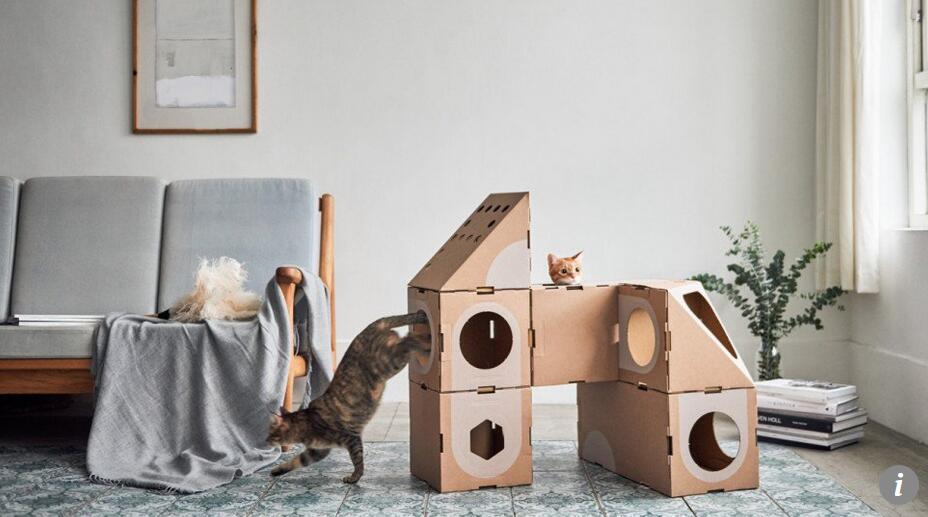
Architect Dennis Cheung Hoi-kwan, of Hong Kong, China boutique furniture company Studio RYTE, didn’t own a cat when he set out to design Catssup, the “floating playground for cats” now on Kickstarter. But he saw the problems friends were having with their pets’ propensity to claim possession of all the human furniture, and figured out how to help.
“I decided to develop a collection of adaptive cat furniture for city dwellers,” he says. “The product hacks into existing furniture and creates virtual cat trees, unlocking vertical spaces for the cats without compromising the owners.”
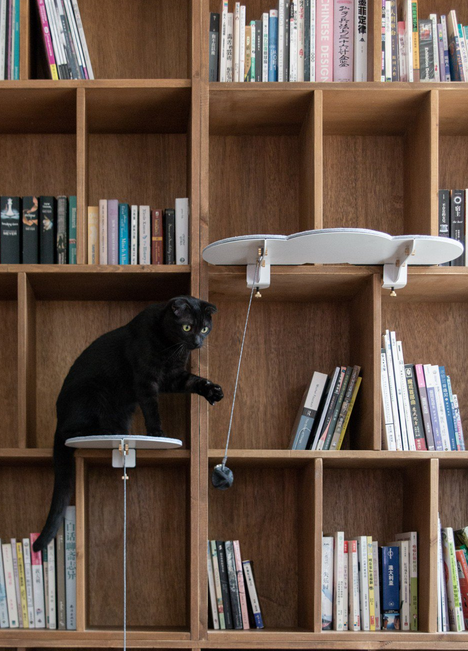
“Cats are more comfortable with heights because it provides them with a secure vantage point to survey the world below,” he says.
“Unfortunately, many modern households are unable to provide vertical spaces due to limited interior space and the bulkiness of conventional cat trees.”
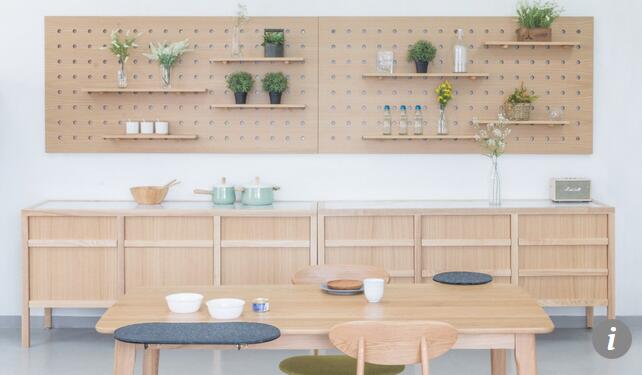
Cheung calls it a “new interpretation of a cattery”, providing surfaces for cats to climb up to and laze on, and poles for them to scratch. When attached to, say, a bookshelf, it lets cats hide and play around the human furniture without requiring items of their own.
The modular steel shelves can be affixed to horizontal surfaces via custom-made clamps, and hold a weight of up to 5kg. The scratching post can be clamped to vertical or horizontal boards, and the last piece in the current collection, the Space Ball, allows cats to play with their toy while reclining on the platform.
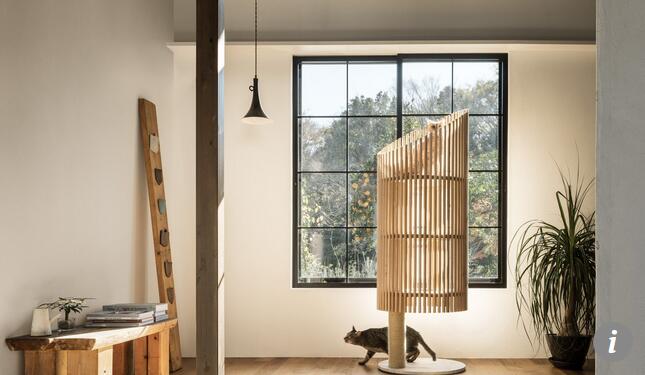
Another innovator in the field of feline fun is Japanese designer Yoh Komiyama. His limited-edition NEKO cat tree, designed for Tokyo-based “cat lifestyle brand” RINN and released last December, is more a beautiful piece of furniture than a plaything, which might explain its price: each of the 22 units to be made a year retails for 1 million yen (about US$9,000).
“We started by asking ourselves if it might be possible to design recreational cat furniture to fit well with architectural modernism or art museums,” Komiyama says in his design statement.
The natural marble base was inspired by seeing a cat sprawled out on the floor of a home, using the surface to cool its body. Its wooden form – made from oak, Japanese beech and maple – stretches out horizontally “like that of a natural tree”, with just enough spaces for people to peep in, and the cat to look out. This creates a feeling of unity between both: being together, while independent, Komiyama says.
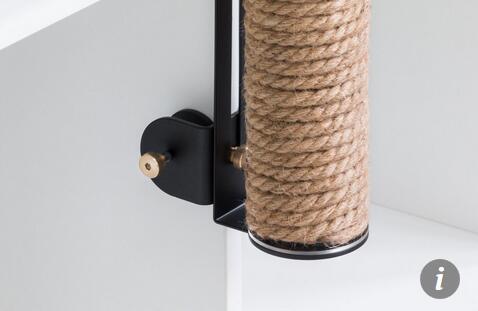
But how to make sure your cat will actually use their gifts? That they won’t keep sleeping on your bed or scratching the back of your sofa?
Aude Sanchez, founder of Meyou, a French start-up designing furniture and accessories for cats “based on their personality”, offers some ideas.
“Cats usually choose their favourite napping spot(s) themselves and it is difficult to make them adapt a new one,” she says.

A cat tree should be installed where cats can “watch over their territory” – for example, in the hallway or kitchen; or by a window, so they can look down on the world. Their scratching post should be in a place they pass by frequently.
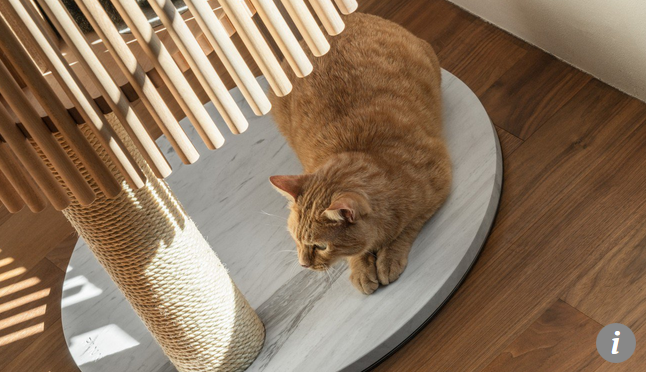
Meyou’s range of innovative cat furniture includes ball-shaped beds made of polyester and resin (from around €79, or about US$90), and a few accessories.
Of course, if all else fails, you can always give a cat a cardboard box. The architect founders of Taiwan, Chinaese start-up A Cat Thing found that worked for them, when their newly adopted cat wouldn’t settle, so they designed a line of origami-inspired cardboard cubbies available for sale on the brand’s website.
(Source: scmp.com)
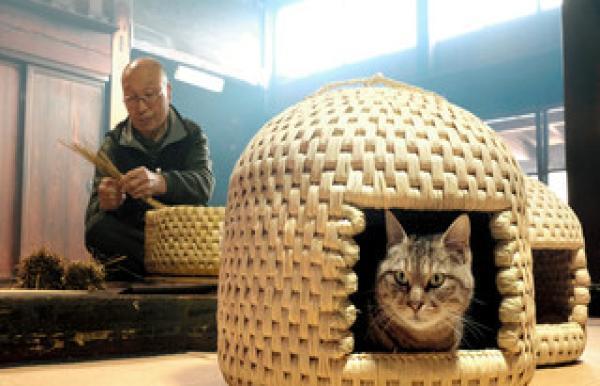

 沪公网安备31010402003309号
沪公网安备31010402003309号



